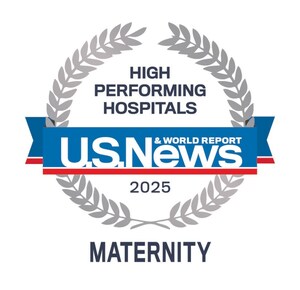The largest study of mummies ever reported finds widespread evidence of heart disease in ancient mummies around the world
** Images available **
FOUNTAIN VALLEY, Calif., May 28, 2024 /PRNewswire/ -- Heart disease is usually thought of as a disease of modern times, but a new study of ancient mummies expands evidence that humans have suffered from the condition for thousands of years across the globe.
The findings of the Global HORUS Study, published in the European Heart Journal, suggests humans have an innate predisposition to atherosclerosis, or a build-up of plaque in the arteries that can lead to heart attack and stroke.
The HORUS research team, collaborating with other study co-authors, analyzed the CT scans of 237 adult mummies from seven different ancient cultures from around the world and found definite or probable atherosclerosis, marked by calcifications in the artery walls, in more than 37%.
While previous research has found atherosclerosis in ancient mummies, the Global HORUS Study is the largest systematic study of the condition in ancient human remains across multiple eras and geographies. "We found atherosclerosis in all time periods—dating over 4,000 years ago—in both men and women, in all seven cultures that were studied, and in both elites and non-elites," said Randall Thompson, MD, first author of the study and cardiologist at Saint Luke's Mid America Heart Institute. "This further supports the HORUS team's previous observation that atherosclerosis is not just a modern condition caused by our modern lifestyles."
Researchers note that although the frequency of the disease in the group studied may be surprising, especially since the estimated mean age of death of the mummies was 40 years old —most cases were consistent with early disease that is often found incidentally on CT scans of modern patients.
Two of the cultures studied, the Inuits of 16th Century Greenland and the 19th Century Aleutians of present-day Alaska, were hunter-gatherers. Both cultures lived off the land and sea without farming or domesticated animals. Previously, some researchers believed that the diet and lifestyle of hunter-gatherers provided complete protection against atherosclerosis. This can no longer be considered to be true.
Radiologist Linda Sutherland, M.D. of MemorialCare stated "The HORUS and other mummy research teams have not been able to find a culture that does not have atherosclerosis."
"The findings demonstrate that humans are innately predisposed to develop atherosclerosis." said senior author cardiologist Gregory Thomas, M.D., of the MemorialCare Heart & Vascular Institute. As this tendency is baked into our genes, our actions, eating right, keeping our cholesterol and blood pressure low, exercising regularly, and not smoking, will impact whether the atherosclerosis we develop over our lifetime will become significant enough to cause a heart attack or stroke."
Mission Heritage Medical Group cardiologist, Michael Miyamoto, M.D. sums it up – "A realistic goal for us is to die with atherosclerosis, not because of it."
Read the full article "Atherosclerosis in Ancient Mummified Humans: The Global HORUS Study" in the European Heart Journal.
About MemorialCare
MemorialCare is a not-for-profit, integrated health care delivery system with 225 care locations including leading hospitals—Saddleback Medical Center in Laguna Hills, Orange Coast Medical Center in Fountain Valley, Long Beach Medical Center and Miller Children's & Women's Hospital Long Beach; MemorialCare Medical Group and Greater Newport Physicians; MemorialCare Research Program; MemorialCare Select Health Plan; and numerous outpatient health, imaging, surgery, urgent care, physical therapy, breast health and dialysis centers throughout Orange and Los Angeles counties. Accolades include Nation's Best Health Systems and Workplaces, Top 50 U.S. Hospitals and Cardiovascular Hospitals, 10 Largest Children's Hospitals, 100 Best Hospitals - Spine and Prostate Surgeries, Best of Orange County and Long Beach Hospitals and Medical Groups, U.S. News & World Report Best Hospitals and "high performing" in 31 clinical categories and Newsweek World's Best Hospitals, Top 100 Hospitals, Best Maternity Hospitals – and more. Visit memorialcare.org.
SOURCE MemorialCare

WANT YOUR COMPANY'S NEWS FEATURED ON PRNEWSWIRE.COM?
Newsrooms &
Influencers
Digital Media
Outlets
Journalists
Opted In






Share this article